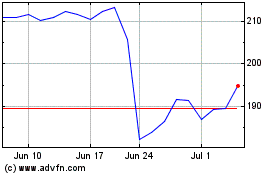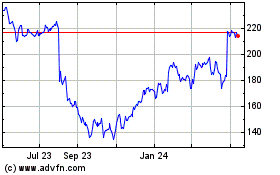SECURITIES AND EXCHANGE COMMISSION
WASHINGTON, D.C. 20549
FORM 8-K
CURRENT REPORT
Under
Section 13 or 15(d) of
the Securities Exchange Act of 1934
Date of Report (Date of earliest event reported):
May 13, 2015
ResMed Inc.
(Exact Name of Registrant as Specified in Charter)
|
|
|
|
|
| Delaware |
|
001-15317 |
|
98-0152841 |
| (State or Other Jurisdiction
of Incorporation) |
|
(Commission
File Number) |
|
(I.R.S. Employer
Identification No.) |
9001 Spectrum Center Blvd.
San Diego, California 92123
(Address of Principal Executive Offices)
(858)
836-5000
(Registrant’s telephone number, including area code)
Check the appropriate box below if the Form 8-K filing is intended to simultaneously satisfy the filing obligation of the registrant under any of the
following provisions:
| ¨ |
Written communications pursuant to Rule 425 under the Securities Act (17 CFR 230.425) |
| ¨ |
Soliciting material pursuant to Rule 14a-12 under the Exchange Act (17 CFR 240.14a-12) |
| ¨ |
Pre-commencement communications pursuant to Rule 14d-2(b) under the Exchange Act (17 CFR 240.14d-2(b)) |
| ¨ |
Pre-commencement communications pursuant to Rule 13e-4(c) under the Exchange Act (17 CFR 240.13e-4(c)) |
Item 8.01. Other Events.
On May 13, 2015 we issued the press release attached as Exhibit 99.1. It is incorporated into this report by reference. The press release
provides an update on the SERVE-HF clinical trial, which studied adaptive servo-ventilation (ASV) therapy in patients with symptomatic chronic heart failure and predominant central sleep apnea.
The study did not show a statistically significant difference, between patients treated with ASV therapy and those in the control group, in
the primary endpoint of “time to all-cause mortality or unplanned hospitalization for worsening heart failure.”
A preliminary
analysis of the data identified a statistically significant 2.5 percent absolute increased risk of cardiovascular mortality for those patients in the trial who received ASV therapy per year compared to those in the control group. Based on the data,
we are working with global regulatory authorities to proactively revise the labels and instructions for use for ResMed ASV devices to include a contraindication for people with symptomatic chronic heart failure with reduced left ventricular ejection
fraction (LVEF<45%).
Revenue from our ASV flow generators, during the twelve-month period ended March 31, 2015,
represented less than 7% of our total revenue. We estimate that approximately 25% of those ASV flow generators were prescribed for patients with symptomatic chronic heart failure with reduced left ventricular ejection fraction.
ASV devices represent less than 2% of flow generator devices that we have shipped to customers. So we estimate that approximately 98% of our
flow generator field population will not include this contraindication.
We expect to incur costs associated with the field safety
notification during our fourth quarter of fiscal year 2015. We expect to provide more detail when we release our earnings for the fourth quarter of fiscal year 2015.
Statements contained in this 8-K and the attached press release that are not historical facts are “forward-looking” statements as
contemplated by the Private Securities Litigation Reform Act of 1995. These forward-looking statements — including statements regarding subsequent analyses of existing data and new data received from past, ongoing and future studies, the nature
and scope of the impact that study results may have on the current or future markets for ResMed ASV devices, and the nature and timing of regulatory and other legal action — are subject to risks and uncertainties, which could cause actual
results to materially differ from those projected or implied in the forward-looking statements. Additional risks and uncertainties are discussed in ResMed’s periodic reports on file with the U.S. Securities & Exchange Commission.
ResMed does not undertake to update its forward-looking statements.
Item 9.01. Financial Statements and Exhibits.
|
|
|
| Exhibits: |
|
Description of Document |
|
|
| 99.1 |
|
Press Release dated May 13, 2015 regarding update on Phase III SERVE-HF study |
2
SIGNATURES
We have authorized the person whose signature appears below to sign this report on our behalf, in accordance with the Securities Exchange Act
of 1934.
|
|
|
|
|
|
|
| Date: May 13, 2015 |
|
|
|
RESMED INC. |
|
|
|
|
(registrant) |
|
|
|
|
|
|
|
|
By: |
|
/s/ Brett Sandercock |
|
|
|
|
Name: Brett Sandercock |
|
|
|
|
Its: Chief Financial Officer |
3
EXHIBIT INDEX
|
|
|
| Exhibits: |
|
Description of Document |
|
|
| 99.1 |
|
Press Release dated May 13, 2015 regarding update on Phase III SERVE-HF study |
Exhibit 99.1

|
|
|
| Contacts: |
|
|
| For News Media |
|
For Investors |
| Alison Graves |
|
Agnes Lee |
| Director, Corporate Communications |
|
Senior Director, Investor Relations |
| O: 858-836-6789 |
|
O: 858-836-5971 |
| news@resmed.com |
|
investorrelations@resmed.com |
ResMed Provides Update on Phase III SERVE-HF Study of
Adaptive Servo-Ventilation (ASV) Therapy In Central Sleep Apnea and
Chronic Heart Failure
Study Did Not Meet Primary Endpoint
Safety Signal of Increased Cardiovascular Mortality Found For ASV Therapy In People With
Predominant Central Sleep Apnea and Symptomatic Chronic Heart Failure
Results and Safety Signal Observed Only In This Specific Study Population
San Diego, Calif. – May 13, 2015 – ResMed (NYSE: RMD) today announced that SERVE-HF, a multinational, multicenter, randomized controlled
Phase III trial did not meet its primary endpoint. SERVE-HF was designed to assess whether the treatment of moderate to severe predominant central sleep apnea with Adaptive Servo-Ventilation (ASV) therapy could reduce mortality and morbidity in
patients with symptomatic chronic heart failure in addition to optimized medical care.
The study did not show a statistically significant difference
between patients randomized to ASV therapy and those in the control group in the primary endpoint of time to all-cause mortality or unplanned hospitalization for worsening heart failure (based on a hazard ratio [HR] = 1.136, 95 percent confidence
interval [95% CI] = (0.974, 1.325), p-value = 0.104). The results from SERVE-HF are preliminary and will be submitted for future publication after further analysis.
A preliminary analysis of the data identified a statistically significant 2.5 percent absolute increased risk of cardiovascular mortality for those patients
in the trial who received ASV therapy per year compared to those in the control group. In the study, the cardiovascular mortality rate in the ASV group was 10 percent per year compared to 7.5 percent per year in the control group. There were no
issues associated with the performance of the ASV therapy device in the trial.
“Patient safety is our first and foremost priority. We have alerted
and are working with appropriate global regulatory authorities about the safety signal observed in this study,” said
Glenn Richards, M.D., ResMed Chief Medical Officer. “The safety signal in SERVE-HF was observed only with the use of ASV therapy in people who have predominant central sleep apnea and
symptomatic chronic heart failure with reduced ejection fraction. We are further analyzing the data to understand why this unexpected result was observed in this trial.”
ResMed is working with global regulatory authorities to proactively revise the labels and instructions for use for ResMed ASV devices to include a
contraindication for people with symptomatic chronic heart failure (with left ventricular ejection fraction, LVEF, less than or equal to 45 percent). The company is also proactively informing healthcare providers, physicians, and patients of the
cardiovascular safety signal observed in SERVE-HF.
The safety signal observed in SERVE-HF was observed only with ASV therapy in patients with moderate to
severe predominant central sleep apnea and symptomatic chronic heart failure with reduced ejection fraction. The study did not include people with central sleep apnea in the absence of heart failure. It is also important to note that SERVE-HF did
not include any patients with predominant obstructive sleep apnea, and did not include any other treatment modality such as continuous positive airway pressure (CPAP) or auto-adjusting positive airway pressure (APAP).
“SERVE-HF did not meet its primary endpoint, however this study provides valuable, practice-changing guidance on how to best care for people with chronic
heart failure,” said Prof. Martin Cowie, M.D., the co-principal investigator of the study and Professor of Cardiology at Imperial College, London. “SERVE-HF was a well-designed and executed study and because of it we now know that ASV
therapy should not be used to treat central sleep apnea in people with symptomatic chronic heart failure with reduced ejection fraction.”
Healthcare
providers and patients who have questions or would like more information are encouraged to call 1-800-478-9010 and visit www.SERVE-HFFAQs.com.
About
Sleep-Disordered Breathing
Sleep-disordered breathing encompasses a spectrum of breathing problems during sleep. The two most common types of sleep
apnea, a condition that results in repetitive pauses in breathing during sleep, are obstructive sleep apnea and central sleep apnea.
Obstructive sleep
apnea (OSA) is a sleep disorder in which the throat muscles relax, block the airways and stop the flow of breath during sleep.
Central sleep apnea is a
sleep disorder in which the brain does not transmit the “breathe” signal to the muscles that control breathing during sleep. In some cases, people with central sleep apnea also exhibit an abnormal breathing pattern known as Cheyne-Stokes
respiration. With Cheyne-Stokes respiration, there is a period of shallow breathing followed by deep breathing, with intermittent central apnea, in which the breath is stopped for more than 10 seconds during each apnea.
In both obstructive and central sleep apnea, the lack of oxygen causes the person to wake up and start breathing again, interrupting continuous sleep. In
central sleep apnea, this occurs more than five times per hour of sleep.
Sleep-disordered breathing is found more commonly in patients with heart failure
than it is in the general population, and people with heart failure often report poor sleep as a symptom.
About SERVE-HF
SERVE-HF is a multinational, multicenter, randomized controlled Phase III study that was designed to assess whether treatment of moderate to severe predominant
central sleep apnea with ASV therapy in addition to optimized medical care could reduce mortality and morbidity in patients with symptomatic chronic heart failure.
About ResMed
The global team at ResMed (NYSE:RMD) is
united in their commitment to changing lives with every breath. With more than 4,000 employees and a presence in over 100 countries, the company has been pioneering new and innovative devices and treatments for sleep-disordered breathing,
chronic obstructive pulmonary disease, and other key chronic diseases for more than 25 years. ResMed’s world-leading products and innovative solutions improve the quality of life for millions of patients worldwide, reduce the impact of chronic
disease, and save healthcare costs. For more information about ResMed and its businesses, visit www.resmed.com or follow @resmed on Twitter.
Safe
harbor statement
Statements contained in this release that are not historical facts are “forward-looking” statements as contemplated by the
Private Securities Litigation Reform Act of 1995. These forward-looking statements — including statements regarding subsequent analyses of existing data and new data received from past, ongoing and future studies, the nature and scope of the
impact that study results may have on the current or future markets for ResMed ASV devices, and the nature and timing of regulatory and other legal action — are subject to risks and uncertainties, which could cause actual results to materially
differ from those projected or implied in the forward-looking statements. Additional risks and uncertainties are discussed in ResMed’s periodic reports on file with the U.S. Securities & Exchange Commission. ResMed does not undertake
to update its forward-looking statements.
# # #
ResMed (NYSE:RMD)
Historical Stock Chart
From Mar 2024 to Apr 2024

ResMed (NYSE:RMD)
Historical Stock Chart
From Apr 2023 to Apr 2024
